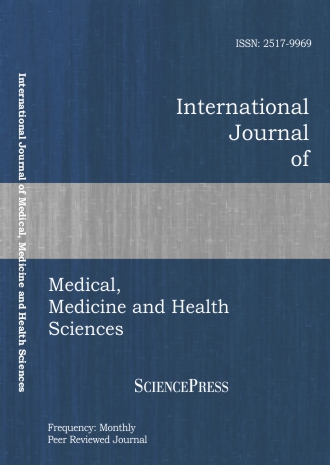
Scholarly
Volume:2, Issue: 5, 2008 Page No: 167 - 170
International Journal of Medical, Medicine and Health Sciences
ISSN: 2517-9969
1241 Downloads
Effect of Vibration Intervention on Leg-press Exercise
Many studies have emphasized the importance of resistive exercise to maintain a healthy human body, particular in prevention of weakening of physical strength. Recently, some studies advocated that an application of vibration as a supplementary means in a regular training was effective in encouraging physical strength. Aim of the current study was, therefore, to identify if an application of vibration in a resistive exercise was effective in encouraging physical strength as that in a regular training. A 3-dimensional virtual lower extremity model for a healthy male and virtual leg-press model were generated and synchronized. Dynamic leg-press exercises on a slide machine with/without extra load and on a footboard with vibration as well as on a slide machine with extra load were analyzed. The results of the current indicated that the application of the vibration on the dynamic leg-press exercise might be not greatly effective in encouraging physical strength, compared with the dynamic leg press exercise with extra load. It was, however, thought that the application of the vibration might be helpful to elderly individuals because the reduced maximum muscle strength appeared by the effect of the vibration may avoid a muscular spasm, which can be driven from a high muscle strength sometimes produced during the leg-press exercise with extra load.
References:
[1] Blair S. N., Kampert J. P., Kohl H. W., et al, "Influences of